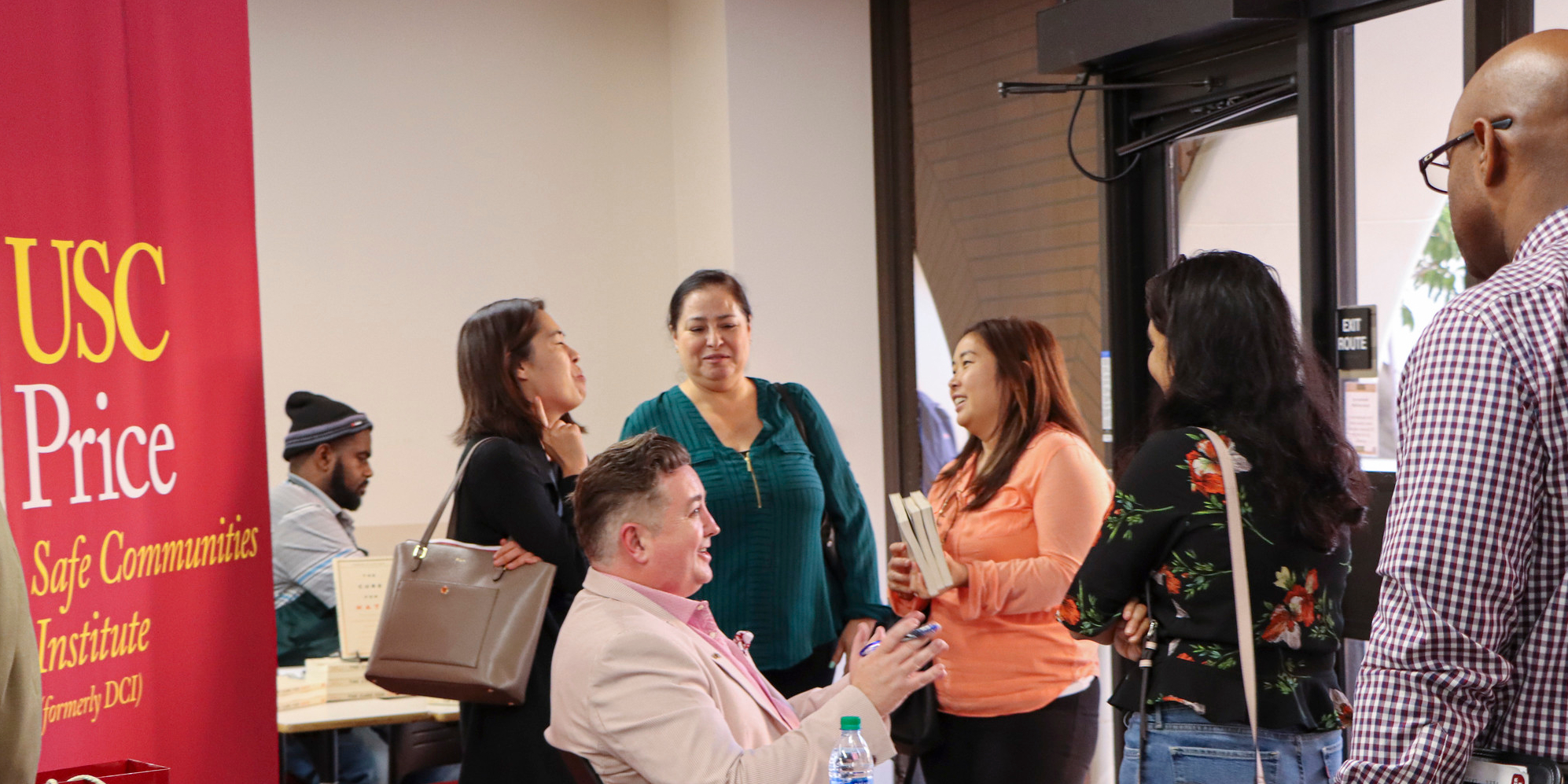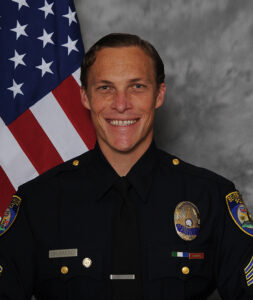By Eric Ruble
If the City Council approves, the Los Angeles Fire Department will soon have its first female chief in its 136-year existence: Kristin Crowley, who currently serves as deputy chief. However, this historic announcement also comes amid allegations of hazing and harassment of female firefighters in LAFD.
The LAFD is hardly the only first-responder agency facing claims of misconduct. Riverside County Sheriff Chad Bianco recently admitted to former membership in the Oath Keepers, a far-right militaristic group with members that have been known to participate in antigovernmental activities like the Jan. 6 insurrection in Washington.
The Safe Communities Institute (SCI) is committed to assisting public agencies like these find proactive solutions. SCI recently hosted two initiatives aimed at breaking down this type of extremism and inequality. The first was a discussion about misogyny and discrimination within fire departments. The second trained law enforcement agencies to identify extremism within their organizations and address it before it spreads.
“The key to ‘breaking down inequality and extremism’ is to build a more resilient society as it relates to messaging and misinformation,” said Dr. Erroll Southers, the USC associate senior vice president of Safety and Risk Assurance and the former director of SCI. “That will only happen through education and awareness forums, such as the ones SCI provides.”
Transcending generations of homogeny
Generating change in large, longstanding institutions like fire departments is a challenge. Enter “Equity on Fire” – a nonprofit dedicated to raising awareness of discrimination in fire departments and acting to end it.
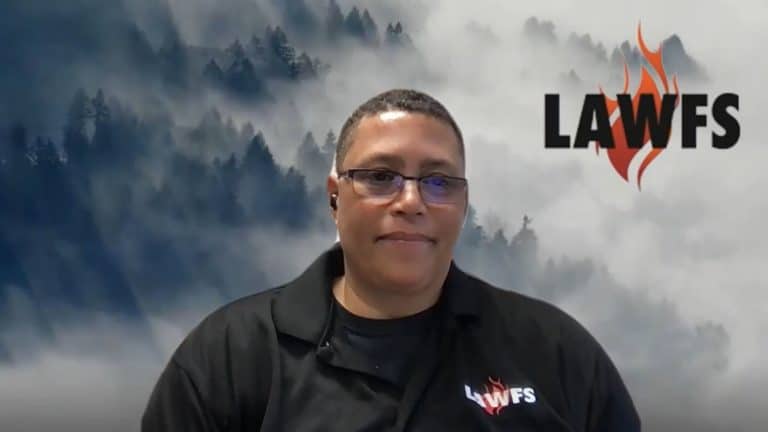
In December, SCI hosted a virtual panel with two members of the nonprofit: Captain Lauren Andrade with the Orange County Fire Authority, and Battalion Chief Kris Larson with LAFD. Both spoke as individuals and not for their employers. The discussion was moderated by Los Angeles Fire Commissioner Rebecca Ninburg.
Alongside the American Civil Liberties Union, Andrade recently led a fight to ensure all OCFA stations had women’s restrooms and showers. “Once we ended up meeting up with the ACLU, [OCFA] found the resources to make it happen,” Andrade said.
Nationwide, fire departments oftentimes do not reflect the communities in which they are located. LAFD, for example, is 3.3% female, according to the Los Angeles Times.
Larson said leadership must ensure the culture shifts throughout departments, which includes changing recruitment practices.
Andrade agreed that recruitment needs to be revamped, and departments should start by more accurately representing firefighters’ work. While rescuing people from burning buildings is a heroic and highly publicized part of the job, Andrade said today’s firefighting force needs additional skills – like speaking a language other than English.
“We have to do a better job of providing our public with a service that they need, not the image we want to maintain,” Andrade said. “If it’s a medical aid [situation] that I’m going to in Garden Grove and I can’t speak Vietnamese, how am I really going to connect with this person that’s in their worst moment?”
Andrade said ultimately, eliminating discrimination will ensure all citizens can have faith in those hired to protect them.
Teaching those who serve to address and remove hate
The second event hosted by SCI was called “Extremists in Law Enforcement: Understanding the Problem and Crafting Solutions” and it has been held in October, December and January. The December class was for the Los Angeles Police Department’s Office of the Inspector General; the January course was open to all law enforcement and included two police chiefs.
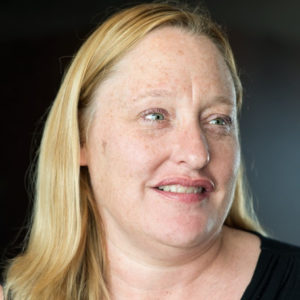
Thirty-three people participated in the four-hour courses, which were taught by Dr. Heidi Beirich and Tony McAleer. Beirich is the co-founder of the Global Project Against Hate and Extremism, and formerly led the Southern Poverty Law Center’s Intelligence Project. McAleer is an author and co-founder of Life After Hate, which he helped establish after leaving the far-right neo-Nazi movement.
Following the Jan. 6 insurrection in Washington, it was revealed that dozens of law enforcement officers and military service members were among those who stormed the U.S. Capitol.
Beirich says extremism has been an issue in police departments for decades, but she was still “a little shocked to see active-duty law enforcement storming the Capitol and attacking other law enforcement.”
In the spring of 2021, Beirich, Southers and McAleer started working together to design the class.
“There was nobody offering any type of course to help police departments understand and grapple with the issue,” McAleer said. “This is a real threat. I guarantee you it is in your police department in some capacity. The first part to be able to tackle it is to know and understand it.”
In the course, Beirich discussed the origin of popular hate groups and how to identify their members within departments. She explained that there are several signs and symbols which could identify someone as a member of the Oath Keepers, the Proud Boys and other groups.
“There are now organizations – the Oath Keepers in particular – that have massive membership and whose sole goal was to recruit military and law enforcement,” she said. “[Officers] have credibility, they have tactical knowledge, they have access to intelligence. There’s a bunch of reasons why you’d want law enforcement in your organization if you’re an extremist group.”
McAleer provided his perspective, having spent 18 years as a self-identified alt-right extremist.
“It helps to take that academic understanding and make it a little bit more real. It humanizes the knowledge,” he said.
Beirich and McAleer said agencies have a duty to fight against extremism, and that starts with defining it.
“If you don’t have a policy, then you can’t discipline someone for violating it,” McAleer said.
Beirich agreed: “The one thing that I think is missing in American law enforcement today is a good definition – that’s accepted by everybody – of what extremism is.”
Los Angeles Police Department Inspector General Mark Smith participated in the December course. He said because his office is tasked with ensuring constitutional, ethical and professional policing, learning about extremism is critical.
“As civilian oversight, we’re not really doing our job as well as we can if we’re not always in learning mode,” Smith said.
Starting with recruitment
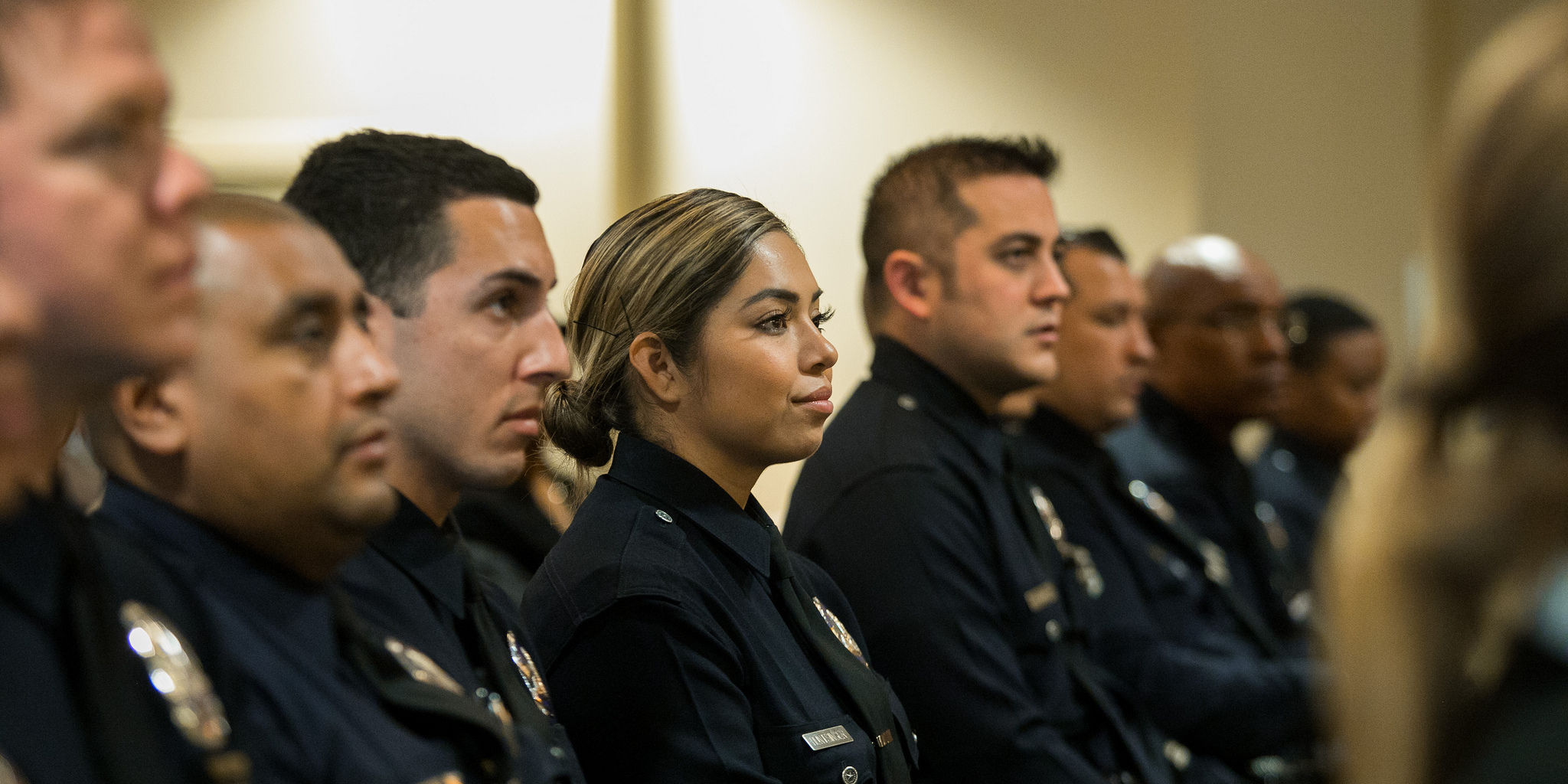 There are roughly 13,000 total employees in LAPD, and Smith said recruitment is the first step in ensuring those workers are dedicated to serving all Angelenos.
There are roughly 13,000 total employees in LAPD, and Smith said recruitment is the first step in ensuring those workers are dedicated to serving all Angelenos.
“One thing that the department is always concerned with doing is getting the right people on board to be police officers,” he said. “As we watch over their efforts to recruit new people, I think we’ll be in a better position now to help make sure that they are cognizant of the concerns of extremism in law enforcement.”
As is the case in fire departments, even a small minority of bigoted members can affect morale within the organization and how the community views it.
Moreover, it degrades a department’s ability to investigate because “everything [an] extremist touched could come into question in a courtroom,” Beirich explained. “The entire police department could get smeared and become less effective and alienated from the community.”
The two events differed in their material, but SCI brought them together to serve a common goal: make first responders better able to protect all of the civilians in their jurisdiction. For organizations truly dedicated to public service, combating discrimination in all forms is not an option – it is a mandate.
“It needs to happen, and it will happen,” Andrade said. “You can see it as overwhelming, or you can see it as a huge opportunity.”
This article was originally published by the USC Price School of Public Policy.



